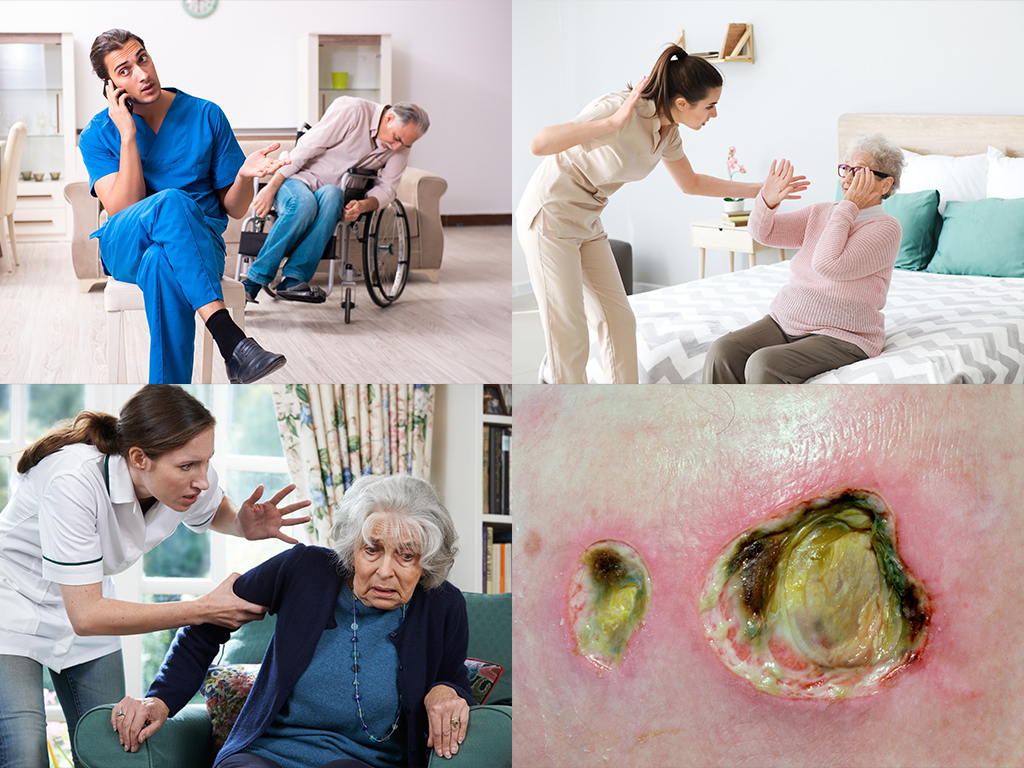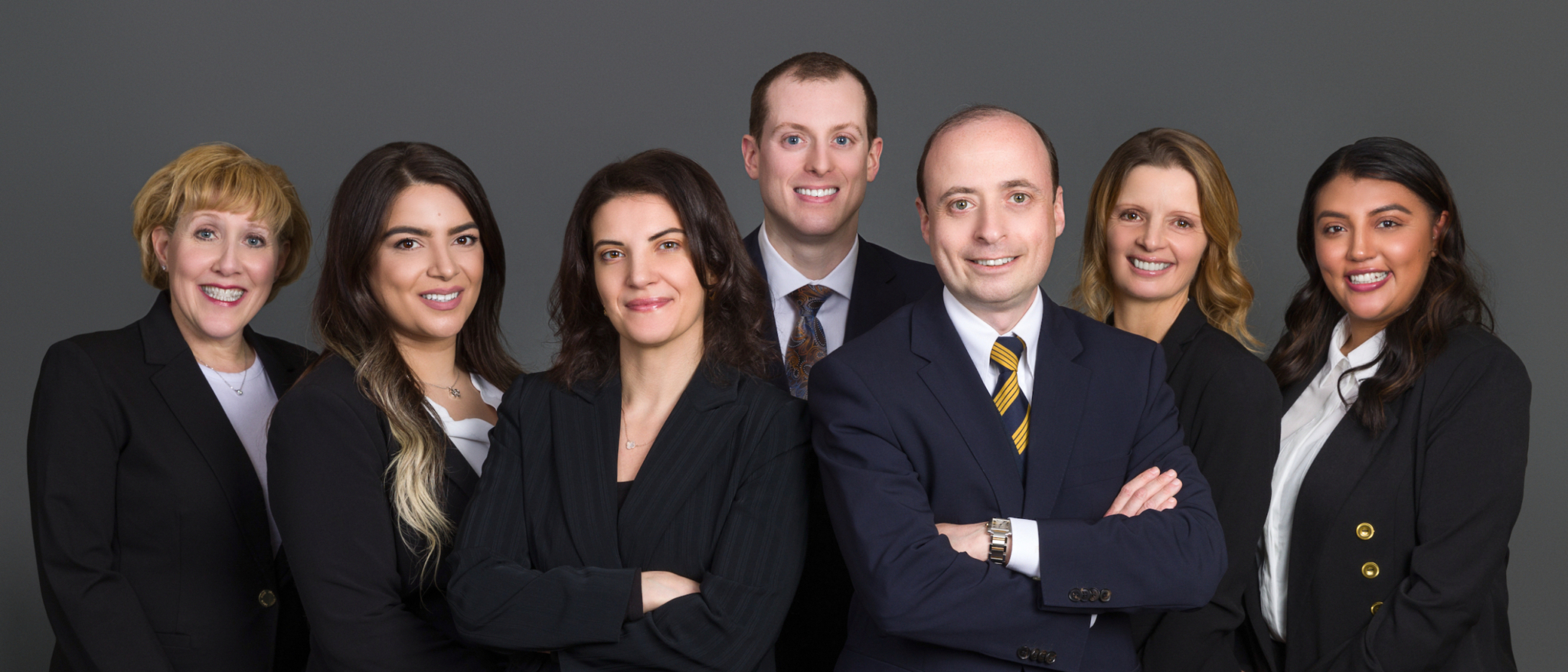
Nursing Home Neglect and Abuse: How to Prevent and How to Seek Justice
The National Center on Elder Abuse estimates that over three million Americans now live in nursing homes. According to 2010 NORS data, physical abuse comprises 29% of complaints filed by residents. If you or someone you love experienced nursing home abuse, you may be eligible for compensation.
Posted on January 3, 2023

What is nursing home neglect and abuse?
Unfortunately, not all skilled nursing homes and assisted living facilities provide necessary and appropriate care for residents. Violations are regularly issued by state investigators.
Increasing numbers of resident abuse and neglect are being reported to state agencies every year. Skilled nursing care facilities are having a difficult time keeping up with proper staffing for the number of new residents being admitted to facilities. The result has been harm to the residents that require medical care, hospitalization, and often cause unexpected death.
According to the CDC Data on nursing home care, there are over 15,000 nursing homes in the United States and the number is rising in every state. There are over 1.5 million beds in these facilities and the majority of the residents are over the age of 65.
In Michigan, there are over 444 licensed nursing homes and even more licensed and unlicensed assisted living facilities. The Centers for Medicare and Medicaid Services that only one in three Michigan nursing homes had an above-average rating in health inspections.
Over 40% of Nursing Home Residents Report Abuse. 95% Report Neglect.
Symptoms of neglect may include:
• Bed sores (pressure sores)
• Malnutrition
• Dehydration
• Poor hygiene
Other serious complications:
• Sepsis
• Infection
• Wrongful Death
• Other serious injuries

Why does it happen?
Shortages of staff. Negligent hiring. Poor management and oversight.
Nursing home neglect cases are often the result of inadequate staffing. Employees who are stressed or overworked may not be able to provide the quality of care needed to keep residents healthy.
Common causes of caregiver stress include improper training and understaffing. In addition, nursing homes may not properly screen or run background checks on the employees they hire.
Inadequate staffing can mean that there aren’t enough people to care for residents, which reduces overall quality of the facility. Impossible workloads lead to overworked staff who cannot fulfill their duties and are more likely to make mistakes.
Sadly, understaffing in nursing homes has been a long-term problem that only worsened in recent years. According to a report from the U.S. Public Interest Research Group, 20% of all nursing homes in America were understaffed as of December 2020.
CBS News suggested that nursing homes struggle to keep long-term employees due to the stresses of caregiving and low pay.
Negligent Hiring Practices. Nursing homes may not do proper background checks or hire people who are not qualified to care for others. This can be risky and dangerous for nursing home residents.
For example, those who have struggled with drug and alcohol use or have been abused themselves are statistically more likely to abuse others. Nursing homes might even hire former criminals who have not reformed to care for vulnerable elders.
Sadly, negligent hiring practices can even extend beyond individual facilities and to those who run major nursing home chains.
For example, Arizona’s governor disbanded a board of nursing home administrators after they hired a felon to run a nursing home. When the COVID-19 pandemic hit, the felon required employees who tested positive for COVID-19 to still work — exposing residents to the deadly virus.
Poor Training. Even if new hires pass a background check, they can still commit nursing home neglect if they’re not properly trained by the facility.
A Wisconsin nursing home closed its doors after multiple allegations of abuse, mistreatment, and neglect. Reports noted that staff members were not trained to even the minimum acceptable level to care for others.
As a result, the staff made mistakes such as medication errors that caused serious harm to residents.
What Are the Laws That Regulate Nursing Homes?
There are both federal and state laws that regulate nursing homes. They specify both the legal obligations of the senior living facility and the rights of patients.
New Jersey Nursing Home Law
New Jersey statute NJAC 8:39-4.1 sets forth the rights for nursing home residents. The statute provides many rights, including that all residents shall receive adequate and appropriate care, have the right to participate in medical decision-making, and the right to religious and civil liberties.
The law also requires that all residents have the right to be free of both mental and physical abuse.
Federal Nursing Home Law
In addition to New Jersey nursing home laws, there are strict federal nursing home statutes that apply. Most important is that the senior living facility must:
- Maintain sufficient nursing staff to provide nursing and related services to attain or maintain the highest practicable physical, mental, and psycho-social well-being of each resident, as determined by resident assessments and individual plans of care.
- Ensure that the medical care of each resident is supervised by a physician and must provide or arrange for the provision of physician services 24 hours a day, in case of an emergency
What Constitutes Abuse in A Skilled Nursing Facility?
Nursing home abuse is when an intentional act by a caregiver that causes harm to the resident. This could be physical harm, unreasonable confinement or restraint, intimidation, or the causing of mental anguish by a caregiver. The abuse can be either a physical injury or psychological damage to the resident and can be caused by a facility staff member and even another resident.
What are the signs of neglect and abuse?
Residents with dementia or Alzheimer’s may have difficulty communicating. Others may be hesitant to report abuse or neglect for fear of staff retribution. If you suspect that your loved one may suffer from nursing home neglect or abuse, look for these signs:
Victim becomes upset and/or agitated, withdrawn or non-communicative, especially around nursing home staff.
Loved one exhibits rapid weight loss, weight gain or symptoms of malnutrition (i.e., mouth sores, dental difficulties, bruises easily, poor wound healing).
There are unexplained injuries, such as cuts, bruises or welts healing in different stages.
Victim displays sudden/unusual behavior changes (not wanting to be touched, biting, rocking).
Your loved one has frequent illness, especially if unreported to family members.
Why do you need an attorney?
Nursing homes receiving Medicaid or Medicare funds must comply with federal regulations. According to CFR 483.13, all residents have “the right to be free from verbal, sexual, physical, and mental abuse, corporal punishment, and involuntary seclusion.” Getting a lawyer to file your nursing home abuse claim holds staff accountable for their actions and stops funding to facilities that violate federal standard of care guidelines.
What to Do Next…
- Complete the form to request a FREE consultation. Answer a few brief questions to see if you may qualify for a claim.
- Pay Nothing for Your Legal Consultation. An attorney will contact you to discuss your case.
- Get Compensated for Your Injury. Unless you win a financial settlement, you’ll pay no legal fees.
Milvidskiy Law Group P.C. is a New Jersey-based law firm with its practice focus on elder law and estate planning. Advocating for our clients and their loved ones, we often find ourselves at odds with the facilities. Unfortunately, it is not that uncommon when a resident needs advocacy and protection from the very facility that is being paid top dollar, whether by the family or by Medicare/Medicaid, to provide services to some of the most vulnerable members of our society – disabled seniors. We proudly stand up against corporate-run nursing homes and assisted living facilities and work with some of the best trial attorneys in the state to take those facilities to court.
Get help today.


Testimonials
Disclaimer: Results may vary depending on your particular facts and legal circumstances.
